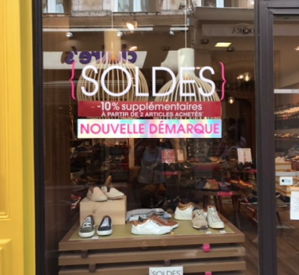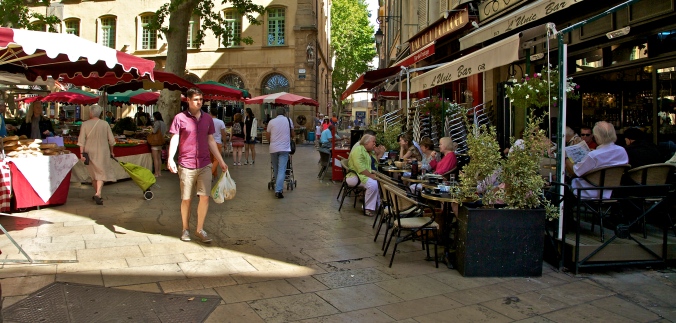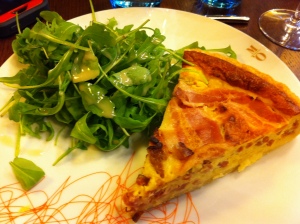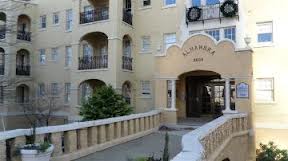I’m finding myself in a weird wedge of time at the moment where I’m fairly obsessed with the book I’m currently writing, a time-travel romance/suspense set in Heidelberg, Germany in the late 1600s. I find I am driven to wallpaper my world: house, website, blog, Facebook with images of Heidelberg. You know how it is when you’re obsessed with something, you crave seeing it everywhere? Well, that’s how I feel when I see the silhouette of the ruins of Heidelberg Castle above the Altstadt or the Church of the Holy Spirit Domplatz or hell, even cobblestone streets. While I am full into this other world (and loving it) I find I have little to no energy for creating a fresh blog post. (And frankly the new puppy hasn’t become any less demanding either!) Ergo, I am turning once again to Adam Jones-Kelly and his ever informative and vastly entertaining blog series OnSite: Eating, Sleeping & Coping Around the World. Today’s post from Adam helps satiate another obsession of mine, all-things-NZ, and I’m confident you’ll love it as I did.
 New Zealand is often referred to as God’s own Country or The Paradise of the Pacific. Make the three hour drive from Auckland north to the Bay of Islands and it’s easy to understand why.
New Zealand is often referred to as God’s own Country or The Paradise of the Pacific. Make the three hour drive from Auckland north to the Bay of Islands and it’s easy to understand why.
New Zealand is a nature park that accidentally became a country. Her appx. 10,000 mile long coastline sports some of the most pristine beaches in the world. One fifth of the North Island and two thirds of the South island boast mountains so spectacular they jockeyed for attention with the special effects in the Lord of the Rings trilogy. New Zealand has an incredibly diverse landscape, home to a tropical paradise in the north, with glaciers and some of the world’s best skiing in the south.
Only 4.3 million people live in New Zealand, with a population density of about 13 people per square mile. (The number is 30 per square mile in the United States, 244 per square mile in Britain and a whopping 6,500 per square mile in Hong Kong.)
New Zealand’s citizens share space with an estimated 40 million sheep, and the country’s biggest pollution problem is the methane produced by sheep farts. In 2008 the government even proposed a tax on farmers whose sheep passed too much gas. (I don’t think they ever figured out how to measure this, but I’d sure love to have seen the debates in parliament!)
What this all demonstrates (besides the fact that politicians are all completely nutty) is that New Zealand is a remarkably untainted natural oasis. “God’s own country” is perhaps an insufficient description of this stunning land.
I won’t make it to the South Island this trip, but I have been lucky enough to see much of the North Island, beginning with my drive up the coast from Auckland to Paihia in the Bay of Islands.
Encompassing some 150 islands, many of which still remain relatively unexplored, The Bay of Islands is a marine paradise home to whales, stunning beaches and lots and lots of playful dolphins. It was the latter Soo and I couldn’t wait to see. “Swim with the dolphins” tours are as intricately linked to the Bay of Islands as porn stars are to Tiger Woods.
The drive North from Auckland takes you past Ruakaka Beach, through towns like Waipu, Warkworth and Whangarei, and I think we stopped at every one.
In Warkworth we enjoyed an absolutely wonderful meal at a small café called Ginger. I had a traditional New Zealand mince ‘n cheese pie, while Soo devoured a steak sandwich she described as “to die for.” (I tried it, and agreed – I was almost willing to kill for another bite.) We also had a perfectly scrumptious “ginger crisp” for dessert, which was nearly good enough to make me forsake pavlova as my favorite kiwi treat.

The incomparable pavlova
From Warkworth we continued north to Whangarei.
Whangarei (pronounced “fongaray”) is a delightful little coastal town, but the Whangarei Falls steal the show. Passing through town without visiting the falls is like reading Playboy “just for the articles;” No one really does it. It’s described as the most photogenic waterfall in New Zealand, and amazingly there’s never anyone else there. I’ve visited three times, and almost always have the area all to myself.
But, beautiful as The Falls were, dolphins were our goal, so on to Paihia we went.
Paihia is a bustling, somewhat touristy seaside town known as “The Jewel of the Bay of Islands,” though this entire region is so gorgeous that this is much akin to pointing to one M&M in a bowl of M&M’s and confidently proclaiming “That, my friends, is THE M&M of M&M’s!”
We dropped our bags in our room at the Paihia Beach Resort (Soo and I both strongly recommend this wonderful boutique hotel) and headed for the wharf.
We choose the Explore New Zealand tour group for our dolphin adventure. They took us, and about 30 other eager tourists, out on the stunning azure waters of the Bay in search of the graceful mammals, and it didn’t take long to find them. It was almost as if the dolphins were looking for us. They couldn’t wait to swim up alongside out boat, and were literally jumping out of the water in anticipation of the happy tourists entering their world.
Soo and I were delighted, and snapped about 300 pictures. We took turns jumping in the water and swimming with the immensely playful pod.
The dolphins were thrilled when you’d dive down with them or try to keep pace as they raced along beside you. They’d dart, jump and splash along with all the energy of a 6-year-old kid. Their joyful innocence was contagious.
 Soo and I spent about 30 minutes each in the water with them. The dolphins are playful and FAST – trying to keep up is exhausting. But it was the most fun exhaustion we’ve ever experienced.
Soo and I spent about 30 minutes each in the water with them. The dolphins are playful and FAST – trying to keep up is exhausting. But it was the most fun exhaustion we’ve ever experienced.
There was nothing we could do to compete with the day we’d just had. We sufficed with going out for seafood (not dolphin) and talking endlessly about our wondrous day. We were on such a high from the swim that just about any food would do.
Regrettably we found 35 Degrees South, a place where depressed sea life goes to die. Our waitress, who spoke no English – not even Kiwi English – may or may not have brought us what we ordered. Whatever it was tasted like the inside of my colon. Soo’s pan-seared scallops could have doubled as rat poison, and they even managed to make my fish ‘n chips taste like sweaty foot. I’m convinced they fed us whatever had died in their filthy aquarium the week before.
We couldn’t eat it.
We tried instead Kava, across the street, and were rewarded with food almost as delectable as the view from this ocean-front eatery. Perfect end to a perfect day.
I’ve yet to be assaulted by one of the famed sheep farts, but I’m pretty sure one of those dolphins let one go while I was diving. Didn’t matter – this was one of the coolest days of my life. I’ll never forget it, or stop appreciating how lucky I was to experience it.

























